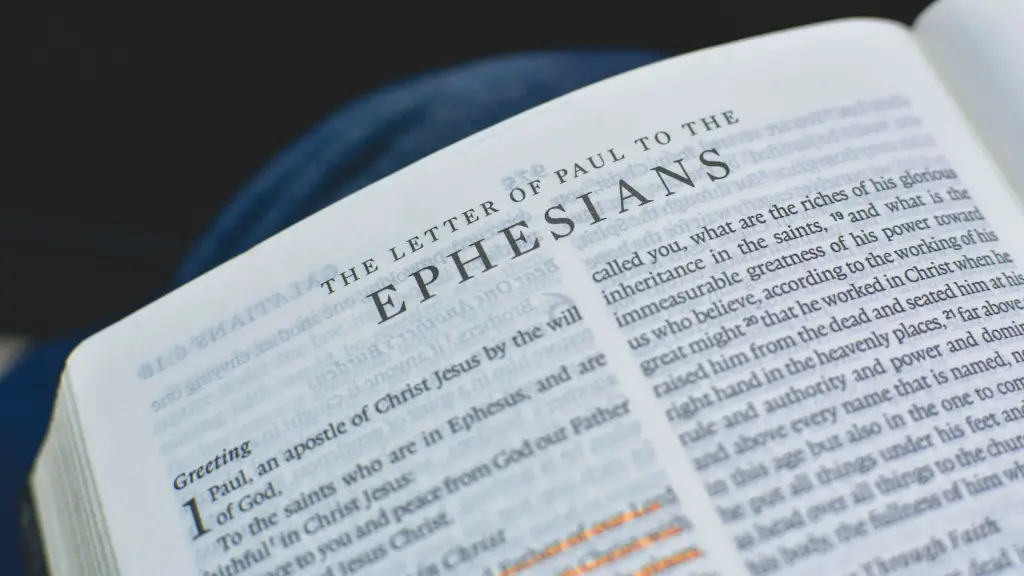When we hear the phrase “forgive and forget,” we typically think of it as meaning that we should forgive someone and then move on from the hurt that they caused. However, the Bible actually has a lot to say about forgiveness, and it doesn’t necessarily mean that we should forget what happened.
The bible does not specifically say “forgive and forget.” However, it does say to forgive one another, just as Christ has forgiven you (Colossians 3:13). We are also instructed to love our enemies and pray for those who persecute us (Matthew 5:44). It is not always easy to forgive, but it is important to remember that we have been forgiven much.
Does forgiveness require forgetting?
It is important to forgive those who have wronged us, but we must not forget their actions. Forgiving and forgetting implies that we exonerate the one who has offended us and never again call to mind their actions. However, there are times when it is important to remember what someone has done in order to prevent them from doing it again.
Christians are called to forgive one another (Matthew 6:14); however, God never tells us that we must forgive and forget. We can forgive others without forgetting what they have done. This allows us to maintain healthy boundaries and to avoid being hurt by the same person again.
What does it mean to forgive but not forget
Desmond Tutu is right, forgiving is not forgetting. It’s actually remembering what happened and choosing not to use your right to retaliate. It’s a second chance for a new beginning. And the remembering part is particularly important. If you don’t want to repeat what happened, it’s important to remember what happened so you can avoid it in the future.
Toxic forgiveness is when you pretend to be unharmed or over an offense, even though it’s still bothering you. This is unhealthy because it can lead to resentment and can damage your relationships. If you’re forgiving someone just to keep the peace, it’s important to make sure that you’re doing it for the right reasons. Forgiving someone because you want to please them is not healthy for either of you. It’s important to be honest about your feelings and to make sure that you’re both on the same page about what happened.
What does the verse forgive and forget mean?
Forgiveness is a virtue that can be difficult to practice, but it is important to remember that it is a choice. Forgiving someone does not mean forgetting what they did, but rather letting go of the pain and resentment that the incident is causing you. Forgiveness is a way to give yourself peace of mind, and it is also an act of hope. When we forgive, we hope that one day the person who wronged us will do the same if they ever offend someone else.
It’s important to realize that forgiveness is not about forgetting. It’s about letting go of the pain and hurt that we’ve experienced. It’s about giving Christ space to come in and heal us.
How do you truly forgive and forget?
Once you feel ready to forgive, you can take a few additional steps to make sure you’re really ready.
Talk through your feelings: Before you can forgive someone, you’ll want to make sure you can put your feelings about what happened into words. Doing this will help you to better understand your feelings and hopefully work through them.
Find the bright side: After you’ve talked through your feelings, try to see the situation from the other person’s perspective. Was there anything good that came from what happened? Focusing on the positive can help you to start forgiving.
Forgive smaller things first: If you’re having trouble forgiving someone for a big thing, start with forgiving them for smaller things. This can help to build up your forgiveness muscle and make it easier to forgive the big things.
Forgive yourself: Lastly, don’t forget to forgive yourself. If you’re beating yourself up over what happened, it will be much harder to forgive the other person. So give yourself some grace and allow yourself to move on.
God’s forgiveness is conditional upon forgiving others. In other words, if we want to receive forgiveness from God, we need to be willing to forgive others. Jesus makes it clear that there should be no limit to how often we forgive others, as long as they repent and ask for forgiveness. This shows us that forgiveness is important to God, and we need to make it a priority in our lives as well.
What is true forgiveness according to the Bible
The Bible teaches that unselfish love is the basis for true forgiveness. When we forgive others, we let go of resentment and give up any claim to be compensated for the hurt or loss we have suffered. Forgiving others helps us to move on from the past and to focus on the present and future.
It can be really tough when we find ourselves in a situation where we feel like someone has wronged us. We might feel like they don’t deserve our forgiveness, or that they don’t even deserve our time and energy. However, if we can take a step back and practice empathy, it can help us to understand where they might be coming from and why they might have acted in such a way. Additionally, reflecting on times when others have forgiven us can remind us that forgiveness is a process – it doesn’t necessarily happen overnight. If we can be patient and understand that it might take some time, we can eventually get to a place of forgiveness.
What are 4 things that forgiveness is not?
In this article, the author discusses forgiveness and what it is not. Forgiveness is not a feeling, forgiveness is not pretending you were not hurt, forgiveness is not condoning what the person did to you, forgiveness is not trusting the offender, and forgiveness is not relieving the person of responsibility. All of these are important points to remember when forgiving someone.
Forgiveness is healing. By forgiving others, we are able to let go of negativity and resentment that can damage our emotional and physical health. Forgiveness can also lead to improved relationships and a sense of peace and happiness.
Is it okay to forgive someone but not forget
Forgiveness is a powerful tool that can lead to personal growth and improved mental and physical health. However, it is important to remember that forgiving someone does not mean forgetting their offense. In some cases, forgiveness can lead to resolution and a deeper understanding of the situation.
The three types of forgiveness are often thought of as a continuum with exoneration at one end, forbearance in the middle, and release at the other end. Exoneration is when we forgive someone and completely absolve them of responsibility for their hurtful actions. Forbearance is when we forgive someone but still hold them accountable for their actions. Release is when we let go of our anger and resentment towards someone without forgiving them.
Why do I find it so hard to forgive and forget?
It’s so easy to pile new hurt onto old hurt. We do it unconsciously, until we’re facing something too big and overwhelming to forgive and forget. For example, if our partner leaves us, we can experience feelings of rejection that can pile on top of unresolved experiences of abandonment from childhood. It’s important to be aware of this so that we can work through our old hurts and not let them control our lives.
If you’re feeling anger towards someone in your life, it’s important to take a step back and consider whether that anger is productive or not. If it’s not, there are a few things you can do to try and diffuse the situation. First, try and understand why you’re feeling this way – is it because of something that person did, or said? If so, talk to them about it and try to come to a resolution. If not, remind yourself of the positive aspects of that person and why you want them in your life. Additionally, you can try some stress-reduction techniques like yoga or meditation. Finally, it’s important to set boundaries with people – both physically and emotionally. If someone is crossing a line, let them know and explain why it’s not okay.
What are the 4 R’s of forgiveness
Taking responsibility for our actions is an important part of being a mature and functioning individual. It can be difficult to do, but it is crucial for our growth as people.
One way to take responsibility is to accept what has happened and show ourselves compassion. This means that we acknowledge our role in what happened, and we forgive ourselves for any mistakes we may have made. It is important to remember that we are all human and that we make mistakes.
Another way to take responsibility is to use guilt and remorse as a gateway to positive behaviour change. This means that we use our feelings of guilt and remorse to motivate us to change our behaviour for the better. We might make amends with the person we hurt, or we might make a commitment to ourselves to do better in the future.
Taking responsibility can be difficult, but it is an important part of growing as a person. It can help us to learn from our mistakes and become better people.
Anger and forgiveness are two sides of the same coin. They both play an important role in the healing process. Without anger, we would not be able to stand up for ourselves or protect ourselves from harm. Forgiveness is just as important, because it allows us to let go of the hurt and move on.
Warp Up
The Bible teaches that forgiveness is something we should do freely and willingly, without expecting anything in return. It also teaches us that forgetting is not always possible or even desirable. Instead, we should focus on God’s forgiveness and let go of our grudges and resentments.
The Bible says a lot about forgiveness and forgetting. Jesus said to forgive those who sin against us, and to love our enemies. He also said that we should forgive seventy times seven times, which means that we should never stop forgiving. Paul said that we should forgive each other as God has forgiven us.





